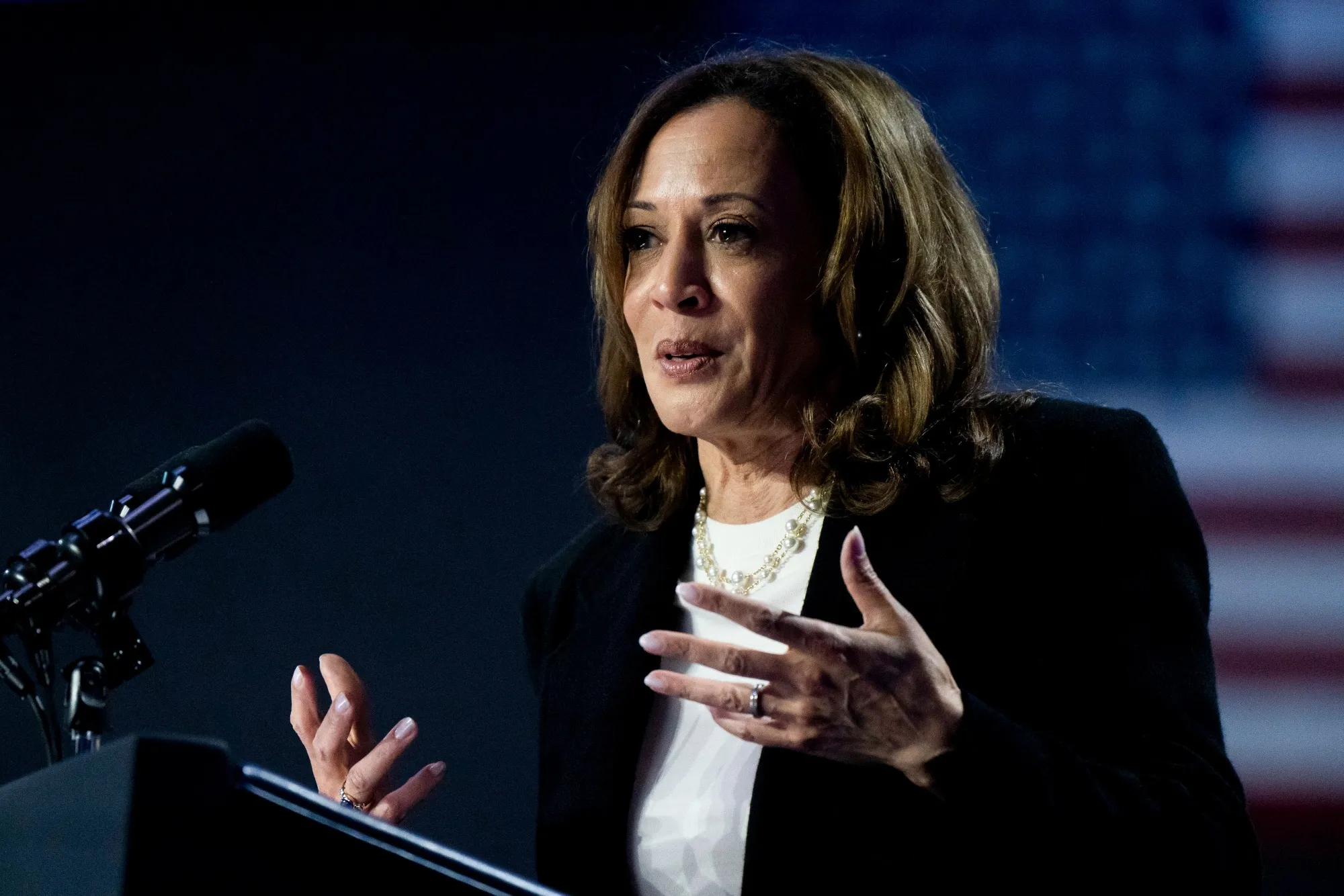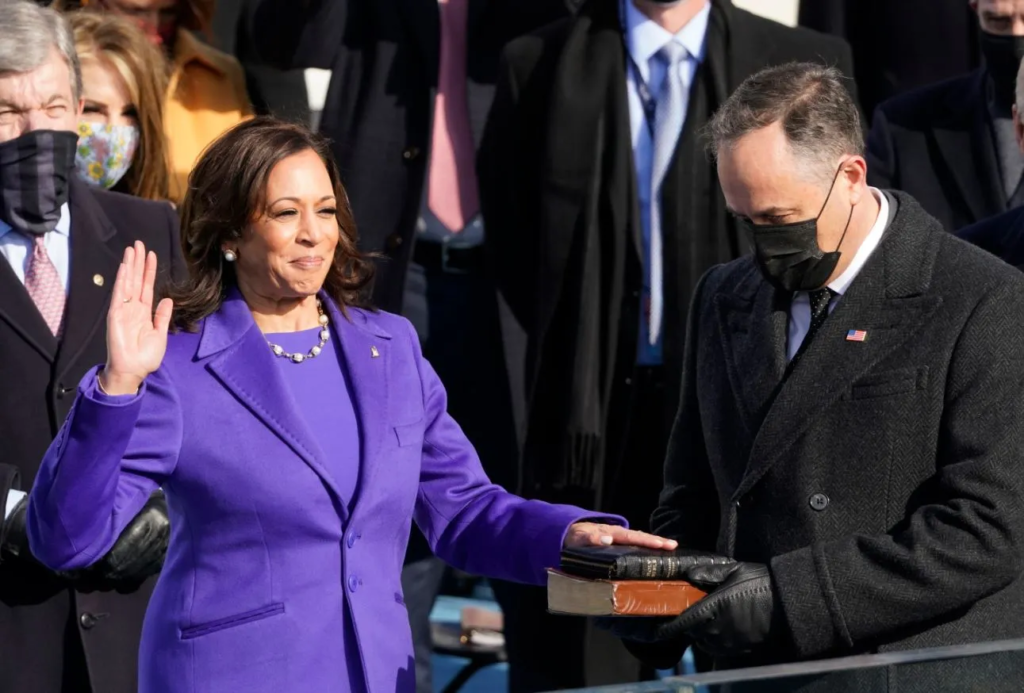Kamala Harris: A Transformative Leader and Trailblazer in American Politics

Kamala Harris, the 49th Vice President of the United States, has become one of the most influential figures in modern American politics. As the first woman, first African American, and first South Asian American to hold the office, her political career symbolizes progress and change. This article explores Kamala Harris’s background, her rise to power, her political achievements, challenges she has faced, and the impact she continues to have on the national and global stage.
Early Life and Cultural Heritage
Kamala Devi Harris was born on October 20, 1964, in Oakland, California. Her parents – Shyamala Gopalan, a cancer researcher from India, and Donald Harris, an economics professor from Jamaica – played a significant role in shaping her values and aspirations. From an early age, Harris was exposed to civil rights activism and academic rigor, which later became the foundation of her political identity.
Table 1: Early Influences on Kamala Harris
| Influence | Details |
|---|---|
| Mother’s Role | Cancer researcher and activist from India |
| Father’s Role | Economics professor from Jamaica |
| Civil Rights Movement | Attended marches and protests with her parents |
| Multicultural Upbringing | Exposure to Indian and Jamaican cultures |
Harris spent part of her childhood in Berkeley, California, and also lived in Montreal, Canada, during her teenage years. This multicultural upbringing helped shape her worldview and gave her a broad understanding of social and economic issues from diverse perspectives.
Educational Journey and Early Career in Law
Harris attended Howard University, a historically Black college in Washington, D.C., where she majored in political science and economics. She later earned her law degree from the University of California, Hastings College of the Law. These educational experiences laid the groundwork for her career in public service.
After completing her education, Harris worked as a deputy district attorney in Alameda County, California. This role marked the beginning of her career as a prosecutor, where she focused on cases involving gang violence, drug trafficking, and sexual assault. Harris’s work during these years demonstrated her commitment to public safety, but it also exposed her to criticisms that would follow her into national politics.
Kamala Harris’s Political Rise: From Attorney General to U.S. Senator
Harris’s breakthrough came in 2003 when she was elected as the District Attorney of San Francisco. In this role, she implemented several reforms, including programs to reduce recidivism and initiatives aimed at providing young offenders with second chances. Her tenure as district attorney set the stage for her next move into statewide politics.
In 2011, Harris became the Attorney General of California – the first woman and person of color to hold this position. She built a reputation as a progressive prosecutor, focusing on issues like environmental justice, same-sex marriage, and corporate accountability. However, her record also attracted criticism for not being aggressive enough on police misconduct cases.
Table 2: Key Roles in Kamala Harris’s Career Before Vice Presidency
| Position | Years Served | Major Achievements |
|---|---|---|
| District Attorney of San Francisco | 2004-2011 | Recidivism programs and youth reform |
| Attorney General of California | 2011-2017 | Advocated for marriage equality, fought foreclosure fraud |
| U.S. Senator from California | 2017-2021 | Focused on criminal justice reform, immigration, and healthcare |
In 2016, Harris was elected as the U.S. Senator from California, where she served on key committees, including the Judiciary Committee and the Intelligence Committee. Her sharp questioning during Senate hearings, particularly in the confirmation of Supreme Court justices, earned her a reputation as a formidable and articulate leader.
The Historic Vice Presidential Nomination and Election Victory

In 2020, Harris was selected as Joe Biden’s running mate for the presidential election, marking a historic moment. Her nomination represented the first time a woman of color was chosen by a major party for such a high office. During the campaign, Harris’s charisma, debate skills, and ability to connect with diverse communities became significant assets.
The Biden-Harris ticket won the election in November 2020, defeating incumbent President Donald Trump and Vice President Mike Pence. On January 20, 2021, Kamala Harris was sworn in as Vice President, making history and inspiring millions across the world. Her oath was administered by Supreme Court Justice Sonia Sotomayor, another trailblazing figure, adding symbolic importance to the moment.
Challenges and Achievements as Vice President
Since assuming office, Kamala Harris has taken on several key responsibilities, from addressing the COVID-19 crisis to leading diplomatic efforts on immigration. She has focused on policy areas such as healthcare, climate change, voting rights, and women’s rights. Additionally, Harris has been instrumental in rebuilding international relationships that had been strained under the previous administration.
Immigration Crisis and Border Policy
One of the most challenging tasks assigned to Harris was managing the immigration crisis at the U.S.-Mexico border. Her role involved addressing the root causes of migration from Central America, focusing on improving economic conditions and combating corruption in countries like Guatemala, El Salvador, and Honduras. This mission has drawn criticism from both conservatives and progressives, reflecting the complexities of immigration policy.
Voting Rights and Domestic Policy
Harris has also been a vocal advocate for voting rights. She has supported federal legislation aimed at countering restrictive voting laws enacted in various states. However, progress has been slow, and her efforts have faced significant opposition in Congress.
Kamala Harris’s Global Impact and Diplomatic Efforts
Harris’s role extends beyond domestic policy, with several international engagements shaping her vice presidency. She has met with world leaders to discuss issues such as climate change, global health, and economic partnerships. These diplomatic efforts reflect her commitment to maintaining U.S. leadership on the global stage.
Harris’s trips to countries like Japan, Singapore, and Germany have highlighted her ability to represent the United States in complex international discussions. Her emphasis on climate diplomacy, in particular, has positioned her as a key advocate for global environmental initiatives.
Table 3: Key Diplomatic Missions by Kamala Harris
| Country/Region | Focus of Visit | Outcome |
|---|---|---|
| Japan | Regional security, trade relations | Strengthened U.S.-Japan alliance |
| Guatemala | Immigration, economic cooperation | Pledged investments to reduce migration |
| Germany | Climate change, NATO relations | Reaffirmed U.S. commitment to NATO |
Criticisms and Future Prospects
Like any prominent politician, Kamala Harris has faced her share of challenges and criticisms. Some critics argue that she has struggled to define her role clearly within the Biden administration, with limited visibility on key issues. Additionally, her handling of the immigration crisis has been a focal point for criticism from both sides of the political spectrum.
However, Harris remains a highly influential figure with the potential to shape the future of American politics. Some speculate that she may run for president in the future, either in 2028 or sooner, depending on political circumstances. Her ability to connect with voters, particularly women and people of color, makes her a formidable candidate for any future race.
Conclusion: Kamala Harris’s Legacy in the Making
Kamala Harris’s journey from Oakland to the White House is a story of perseverance, resilience, and trailblazing leadership. As the first female, African American, and South Asian vice president, she has already made history. Despite facing numerous challenges, her influence on American politics and society is undeniable.
Looking ahead, Harris’s legacy will depend on her ability to address complex issues, both domestically and internationally. Whether she continues as vice president or pursues higher office in the future, Kamala Harris’s impact will be remembered as a symbol of progress and a testament to the power of representation in politics.
Her story is far from over, and millions of people, especially young girls and marginalized communities, continue to look up to her as a source of inspiration. Kamala Harris has not only broken barriers but has also opened doors for future generations to walk through.



